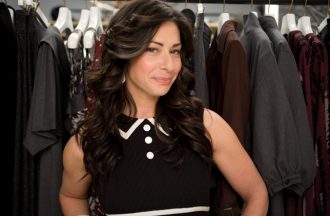I am a long-time fan of reality television: first American Idol, then, What Not to Wear, So You Think You Can Dance, and now Master Chef. The mythologist Joseph Campbell provides an explanation for the success of these programs: “A hero ventures forth from the world of common day into a region of supernatural wonder; fabulous forces are there encountered and a decisive victory is won; the hero comes back from this mysterious adventure with the power to bestow boons on his fellowman.”
Isn’t this what happens in reality TV?
We see people who are hoping to be called out of their everyday lives to an adventure, to be tested on a road of trials in hopes of obtaining the ultimate boon. Watching, we find pieces of ourselves mirrored in the contestants; we, too, are on the mythic journey of a hero.
We see people who are hoping to be called out of their everyday lives to an adventure, to be tested on a road of trials in hopes of obtaining the ultimate boon. Watching, we find pieces of ourselves mirrored in the contestants; we, too, are on the mythic journey of a hero.
In What Not to Wear featuring Stacy London I find myself fascinated by the dramatic impact of a one-week style makeover on my perception of the guest contributor, and especially on the guest contributor's perception of herself.
 |
| via |
I must confess, however, that as the now-stylish, newly confident guest contributor returns home and I get a glimpse of her interacting with her loved ones, I wonder...not at whether her transformation is sustainable, but at how her loved ones, the swans in her pond will, over the long-term, respond to this ugly duckling-turned-swan.
Said another way, now that her family and friends have encouraged her to dare to dream, will these same relationships become the source of difficulty on her Road of Trials?
Definition: The Road of Trials, which comes after the hero has accepted the Call to Adventure (her friends nominating her, and her agreeing to the What Not to Wear makeover), is always a succession of experiences, which if we survive, amplifies our consciousness, allowing us to find new strength and power.
Do her supporters intentionally become detractors? Likely not. But, the fact is, that every one of our relationships has a unique dynamic to it -- a symbiosis, or equilibrium. When we dare to dream, and to act on our dreams, we upset that equilibrium. Just think back to how Andie's friends reacted to her in The Devil Wears Prada. The question then becomes, when we begin to become more of who we are, upsetting the current equilibrium in our relationships, how do we gracefully manage this?
Here are a few suggestions:
1. Pause for a moment (could be a very long moment), and be grateful to our friends and family who have encouraged us, who gave us a grand send-off as we began to dream.
2. Recognize that your loved ones may just need reassurance that they are still part of your dare-to-dream team.
3. Consider the possibility that, after so many weeks, months, even years, of a loved one being our hero of support, it is now time to return the favor.
4. Persevere. If you believed your dream was right to pursue, and you still do, then keep going.
As each episode What Not to Wear concludes, there’s a grand reveal. It would be easy to frame this wonderful moment as only one of achieving the boon. It is, but it’s also the call to another adventure. Because if the contributor wears her makeover well, not only will she be the perennial hero of her story, she’ll help her loved ones become the hero of theirs.
Whitney Johnson is the author of Dare, Dream, Do: Remarkable Things Happen When You Dare to Dream (Bibliomotion, 2012) and speaks frequently on early-stage investing and women’s leadership. You can follow her on Twitter @johnsonwhitney, Facebook https://www.facebook.com/DareDreamDo and Pinterest. http://pinterest.com/johnsonwhitneyl/

0 comments:
Post a Comment